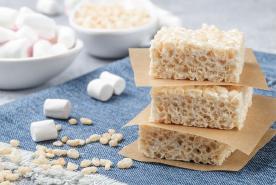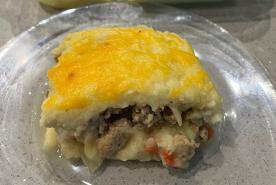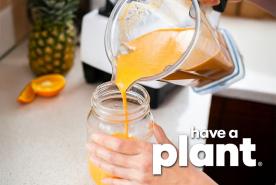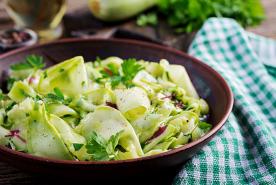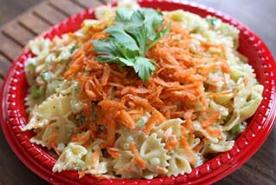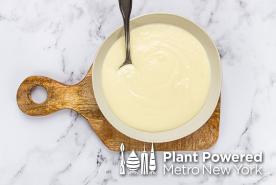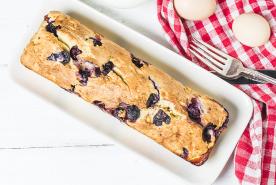When you have CKD, adjusting your diet can make it hard to get enough calories. This guide offers tips to ensure you meet your energy needs while eating healthily.
Table of Contents
- What are calories?
- Do I need more calories now that I have kidney disease?
- What foods am I allowed to eat to help me gain weight?
- Do I need to worry about potassium, sodium or phosphorus in free foods?
- What if I have diabetes?
- What should I do if I am losing weight without trying?
- What if I have high cholesterol?
- How long do I need to increase the calories in my diet?
- How can I use free foods in my diet?
- How can I add high-calorie foods to my diet?
- How many calories are in free foods?
- How many calories are in high calorie foods?
- What if I have more questions?
When you have chronic kidney disease (CKD), you need to make changes in your diet. Sometimes these changes may make it more difficult for you to get enough calories to have enough energy each day. You may also need to gain weight so that you can stay healthy. This fact sheet will explain what you can do to make sure you get enough calories from your diet while still eating healthy.
Do I need more calories now that I have kidney disease?
You may need to increase your calories each day for the following reasons:
- A diet for chronic kidney disease (CKD) limits foods from some food groups. You may eat fewer calories because you have to omit these foods.
- Some days you may not feel like eating your usual meals. This can gradually lead to weight loss.
- You may be underweight or have lost weight recently because of your kidney disease.
- Your body needs more calories if you are on dialysis.
What foods am I allowed to eat to help me gain weight?
It is important to eat the amount of food that your dietitian has recommended. If you are still losing weight, you should try to add extra calories from simple carbohydrates like sugar, jelly, jam, hard candy, honey and syrup. Other good sources of calories come from vegetable fats, such as margarine, vegetable oil and non-dairy creamer. These foods can be used as free foods to give you extra calories each day.
What if I have diabetes?
If you have diabetes and need to gain weight, it may be best for you to increase your calories from starches and vegetable fats. You may be able to eat some simple sugars, but talk with your dietitian before adding these foods. Your dietitian will help adjust your diet to meet your caloric needs.
What should I do if I am losing weight without trying?
If you continue to lose weight, you should discuss your diet with your dietitian. You may need to increase your portions or include more free foods. There may also be other reasons for your weight loss, which you should discuss with your doctor.
Your dietitian may also recommend a special nutrition supplement that is not a free food. These supplements provide extra calories and protein and are usually used for a short time.
What if I have high cholesterol?
Select vegetable fats that are low in saturated fat, such as olive oil, canola oil, soft margarine and mayonnaise. Talk with your dietitian about how to choose the best lean cuts of meat. Some examples are chicken, turkey, fish, pork tenderloin and eye of the round beef. It is important to remove all of the visible fat from meat and skin from poultry and to use only vegetable oils and fats in the cooking.
The yolk of the egg contains large amounts of cholesterol, but can be eaten a few times per week. The white of eggs contains no fat and is a very good source of protein. Speak with your dietitian about using these foods in your diet.
How long do I need to increase the calories in my diet?
You need to increase your calories until you are able to reach your normal healthy weight. This takes time, so be patient. Include free foods every day in addition to meats, vegetables, fruits, grains and breads. Dairy products can be allowed in small amounts. Your CKD dietitian will help you adjust your calories as your weight increases.
How can I use free foods in my diet?
Here are some tips for using these foods in your diet:
- Use honey or sugar on cereal and in beverages.
- Use syrup on pancakes, French toast, waffles and hot cereal.
- Eat candies such as gum drops, hard candy and lollipops at the end of a meal or as a snack.
- Use honey, jelly, jam, margarine or cream cheese on toast, bread, rolls and crackers.
- Instead of plain water, drink beverages that have calories from sugar.
- Add margarine to rice, hot cereal, noodles, vegetables and bread.
How can I add high-calorie foods to my diet?
Your dietitian will help you decide which high-calorie foods are best for you. Some general suggestions follow:
- Add sour cream to omelettes, noodles, rice and vegetables.
- Instead of milk, use half and half, cream, or non-dairy creamer.
- Eat desserts that are low in potassium, sodium and phosphorus, such as croissants, sweet rolls, plain wafer cookies, Rice Krispie® treats, cobbler or pie made with allowed fruits and puddings made with non-dairy creamer, half and half or cream.
These foods are high in saturated fat, which could raise your cholesterol. Discuss how to use them with your dietitian.
| Fluids: | |
| Soda (non-cola) | 6 ounces |
| Kool-Aid (with sugar) | 8 ounces |
| Fruit Ice, sorbet | 4 ounces |
| Popsicles | 2 halves |
| Liquid non-dairy creamer | 5 tablespoons |
Fats: | |
| Margarine | 1 tablespoon |
| Mayonnaise | 1 tablespoon |
| Vegetable oil | 1 tablespoon |
Candies: | |
| Hard candy | 5 pieces |
| Candy corn | 2 tablespoons or 1 ounce |
| Gum drops | 3 large pieces |
| Jelly beans | 15 pieces |
| Lifesavers | 1 package |
| Lollipops | 1 ounce |
| Marshmallows | 5 large |
| Mints | 1 ounce |
Sweets: | |
| Sugar, honey, syrup | 2 tablespoons |
| Maple sugar | 2 tablespoons |
| Jam, jelly, marmalade | 2 tablespoons |
| Glucose polymer powder | 4 tablespoons |
| Whipped topping (non-dairy) | 8 tablespoons |
| Cream cheese (1 ounce) | 2 tablespoons |
| Sour cream | 4 tablespoons |
| Half and half | 5 tablespoons |
| Table cream | 4 tablespoons |
| Cream | 3 tablespoons |
| Whipping cream | 2 tablespoons |
What if I have more questions?
If you have other questions, you should speak to your doctor or dietitian. The dietitian can help you with a meal plan that will provide enough calories to help you gain weight or keep from losing weight.
If you would like more information, please contact us.
© 2015 National Kidney Foundation. All rights reserved. This material does not constitute medical advice. It is intended for informational purposes only. Please consult a physician for specific treatment recommendations.











